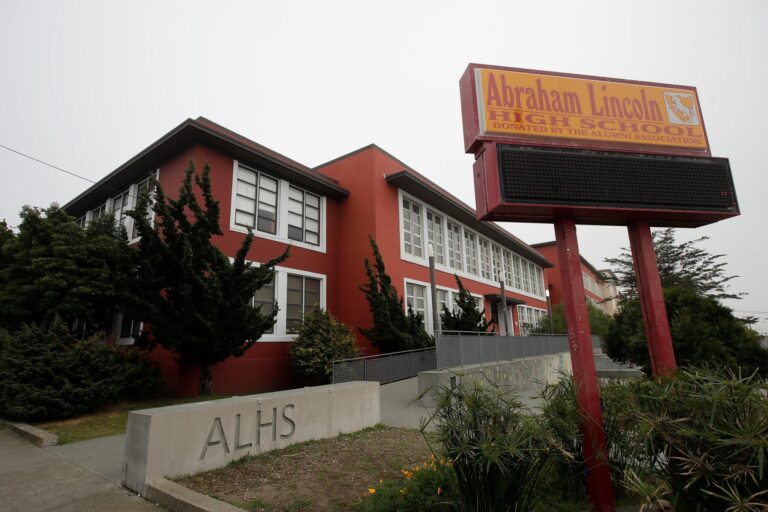San FranciscoŌĆÖs Progressive Divide: The Controversy Over School Renaming
In San Francisco, a city renowned for its progressive values, a surprising internal conflict has emerged among liberals regarding the renaming of public schools. This debate centers on how to address the legacies of historical figures whose names adorn educational institutions but whose past actions are now viewed as problematic. The controversy reveals the intricate challenges of balancing social justice with historical preservation, as educators, parents, and activists wrestle with how best to honor the past while promoting equity and inclusion in education.
Reevaluating School Names: A Progressive Dilemma
The movement to rename schools in San Francisco has sparked a nuanced debate within the cityŌĆÖs liberal community, exposing divergent views on confronting history. Advocates for renaming argue that maintaining names linked to colonialism and systemic racism perpetuates harm and exclusion. Conversely, some community members caution that removing these names risks erasing important historical context and oversimplifying complex narratives.
This debate is not merely symbolic; it reflects a broader ideological struggle about how progressive values should be enacted in public education. The key perspectives include:
- Supporters of renaming: Emphasize the importance of dismantling symbols that glorify oppression and creating welcoming spaces for marginalized students.
- Opponents: Advocate for enriching curricula with diverse viewpoints rather than removing names, to foster critical thinking about history.
- Compromise advocates: Propose adding contextual information, such as plaques or educational programs, to accompany existing names.
| Viewpoint | Core Concern | Suggested Approach |
|---|---|---|
| Renaming Proponents | Eliminating colonial and racist symbols | Replace school names with inclusive alternatives |
| Renaming Opponents | Preserving historical complexity | Revise and diversify educational content |
| Moderate Voices | Balancing remembrance with education | Install contextual plaques and develop programs |
Progressive Tensions Over Historical Legacies
The decision to remove names of figures associated with colonial violence and systemic discrimination has ignited passionate debate among San FranciscoŌĆÖs progressive factions. Proponents view this as a vital step toward fostering inclusive learning environments where all students feel respected and represented. Critics, however, warn that such actions risk simplifying history and alienating those who see these figures as integral to the cityŌĆÖs heritage.
Central issues fueling the debate include:
- The challenge of promoting social justice while maintaining historical nuance.
- Determining criteria for which historical legacies are appropriate for public honor.
- Implications for curriculum development and diversity initiatives in schools.
| Group | Stance | Primary Concern |
|---|---|---|
| Students and Parents | Generally supportive | Creating inclusive educational spaces |
| Teachers | Mixed opinions | Balancing historical accuracy with values |
| Community Activists | Strongly in favor | Addressing historical injustices |
| Alumni | Often opposed | Preserving tradition and legacy |
Community Fractures Amid Historical Reckoning
San FranciscoŌĆÖs initiative to rename schools honoring controversial historical figures has exposed rare ideological divisions within its liberal base. What started as a push for social justice has evolved into a contentious debate, with advocates viewing the renaming as overdue reckoning, while detractors fear it may erase the complexity of history and alienate long-standing community members.
Supporters highlight:
- The importance of aligning public symbols with modern values of equity and inclusion.
- Creating safe, welcoming environments for students from marginalized backgrounds.
- Encouraging critical examination of history rather than uncritical celebration.
Opponents caution against:
- Oversimplifying historical figures and eras, which can distort understanding.
- Potential censorship and loss of educational opportunities to engage with difficult histories.
- Fracturing unity within a politically aligned community.
| Historical Figure | Notable Contributions | Controversial Issues |
|---|---|---|
| John Muir | Pioneering environmentalist | Problematic views on Indigenous peoples |
| Cesar Chavez | Champion of labor rights | Allegations of exclusionary attitudes |
| Junipero Serra | Founder of California missions | Involvement in Native American oppression |
Bridging Divides Through Constructive Dialogue
Experts emphasize that resolving the ideological rifts within San FranciscoŌĆÖs progressive community requires fostering open, inclusive conversations. Creating environments where all stakeholdersŌĆöparents, educators, students, and activistsŌĆöcan express their views without fear of dismissal is essential for moving beyond polarized debates.
Recommended approaches to facilitate understanding include:
- Structured community forums: Moderated discussions that ensure equitable participation and prevent dominance by any single viewpoint.
- Collaborative roundtables: Bringing together diverse groups to jointly explore the implications of renaming and curriculum changes.
- Inclusive policy development workshops: Co-creating strategies that respect multiple historical perspectives while aligning with contemporary social values.
Experts warn that neglecting these complexities risks deepening divisions, underscoring the need for sustained, empathetic engagement to rebuild trust and foster unity.
Conclusion: Navigating History and Progress in San Francisco Schools
The ongoing debate over school renaming in San Francisco encapsulates the broader challenges of addressing historical legacies within a diverse and politically engaged community. What began as an effort to promote inclusivity and confront past injustices has evolved into a multifaceted cultural conflict, reflecting national conversations about identity, memory, and education reform. The decisions made by educators, parents, and policymakers in this process will not only shape the future of San FranciscoŌĆÖs public schools but may also serve as a model for other communities wrestling with similar issues.




